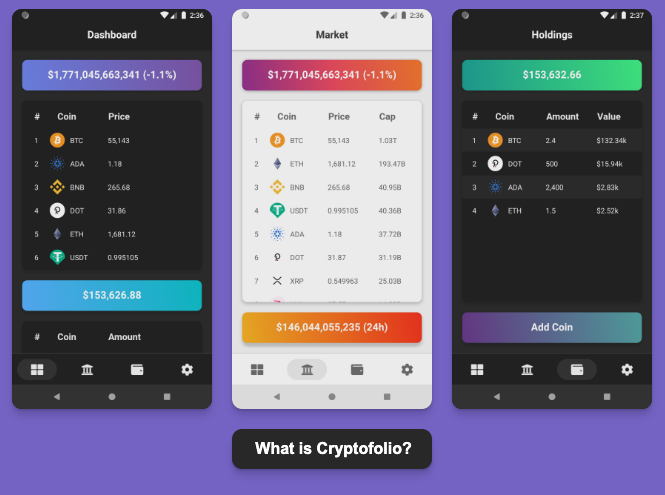Beyond the Hype: How Bitcoin's Blockchain Revolutionizes Open-Source Software
For many, Bitcoin conjures images of a volatile digital currency and a speculative investment. However, beneath the headlines lies a transformative technology with the potential to disrupt numerous industries – and open-source software (OSS) is at the forefront of this revolution.
This article explores the surprising connection between Bitcoin and OSS, particularly in healthcare, education, enterprise, development, medical imaging, medical records and digital pathology.
We'll delve into the core concepts of Bitcoin, explore its unique characteristics and discuss how buying Bitcoin can be a gateway to leveraging its power for open-source software development.

Demystifying Bitcoin
Launched in 2009, Bitcoin is the world's first decentralized digital currency. Unlike traditional currencies controlled by central banks, Bitcoin operates on a peer-to-peer network.
Transactions are recorded on a public ledger called a blockchain, accessible to anyone on the network. This transparency fosters trust and eliminates the need for intermediaries like banks, potentially reducing transaction costs and increasing transaction speeds.
Buying Bitcoin: A Gateway to Blockchain Technology
While this article focuses on the broader applications of Bitcoin's underlying technology, understanding how to buy Bitcoin can be a valuable first step for developers and enthusiasts. Several reputable platforms allow users to buy Bitcoin with various payment methods, including credit cards, debit cards and bank transfers.
It's crucial to choose a secure and established platform with strong user authentication and clear fee structures. Conducting thorough research before buying Bitcoin is essential.
Core Features of Bitcoin Relevant to Open-Source Software
Bitcoin's core functionalities align remarkably well with the principles of OSS:
- Open-source software: The Bitcoin Core software, which maintains the network, is freely available for anyone to inspect, modify and contribute to. This transparency fosters trust and allows for continuous improvement.
- Decentralization: No single entity controls Bitcoin. This aligns with the core principle of OSS, where projects are developed and maintained by a collaborative community.
- Immutability: Transactions on the Bitcoin blockchain are irreversible, making it tamper-proof and ideal for maintaining secure records.
- Security: Bitcoin utilizes cryptography to secure transactions and protect user privacy. This robust security infrastructure can be leveraged by OSS projects to safeguard sensitive data.
Potential Applications in Open-Source Software
The open-source nature of Bitcoin and its core functionalities offer exciting possibilities for various open-source software domains:
Healthcare:
- Secure Medical Records: Blockchain technology can be integrated with Electronic Health Records (EHR) systems to create a secure and tamper-proof record of a patient's medical history. This fosters data integrity and facilitates collaboration between healthcare providers. Open-source EHR systems like OpenEMR could benefit from blockchain's immutability for secure data storage.
- Supply Chain Management: Blockchain can track the movement of pharmaceuticals and medical supplies, ensuring authenticity and preventing counterfeiting. This transparency is crucial for patient safety and can be implemented in open-source supply chain management solutions.
- Research Data Management: Open-source research platforms could leverage blockchain to securely store and share sensitive research data while maintaining participant privacy.
Education:
- Diplomas and Credentials: Universities could issue tamper-proof digital diplomas and transcripts on a blockchain, facilitating verification by employers and educational institutions. Open-source Learning Management Systems (LMS) like Moodle could explore integrating blockchain for secure credential management.
- Micropayments for Educational Resources: Blockchain can enable micropayments for educational resources, allowing learners to access content on a pay-per-use basis. This could be integrated into open-source educational content platforms.
Enterprise:
- Secure Document Management: Open-source document management systems can leverage blockchain for secure document storage and access control. This ensures document authenticity and simplifies collaboration within and across organizations.
- Supply Chain Management (Enterprise): Similar to healthcare, blockchain offers benefits in enterprise supply chain management. Open-source Enterprise Resource Planning (ERP) systems could integrate blockchain to track goods and materials transparently.
Development:
- Open-source Project Funding: Blockchain can facilitate secure and transparent donations to open-source projects. Developers could receive micro-donations in Bitcoin or other cryptocurrencies for their contributions to open-source software projects.
- Software License Management: Open-source software licenses can be stored on a blockchain, ensuring their authenticity and immutability. This can help prevent licensing disputes and streamline software distribution.
Medical Imaging and Digital Pathology:
- Secure Image Sharing: Blockchain can enable secure and auditable sharing of medical images and pathology data among healthcare professionals. This collaboration is crucial for accurate diagnoses and treatment planning. Open-source medical imaging and pathology software could integrate blockchain for secure data exchange.
- Telepathology: By enabling safe access to and analysis of digital pathology slides, blockchain technology can enhance diagnostic accuracy and improve access to specialized expertise for pathologists who are located in disadvantaged areas.
- Research Collaboration: Researchers can leverage blockchain to securely share anonymized medical images and pathology data for collaborative research studies. This can accelerate medical advancements while maintaining patient privacy.
Challenges and Considerations
While Bitcoin's technology holds immense potential, there are challenges to consider:
- Scalability: Bitcoin's current transaction processing capacity is limited. Scaling solutions are being developed, but their long-term effectiveness remains to be seen.
- Energy Consumption: The mining process used to secure the Bitcoin network consumes a significant amount of energy. Sustainable solutions are needed for wider adoption in open-source software. One such solution, flare gas, is becoming a hot area of innovation in Bitcoin mining. It tackles two problems at once: reducing environmental impact and finding cheap, reliable energy for miners.
- Regulation: The regulatory environment for cryptocurrencies is still evolving. Open-source software projects integrating Bitcoin technology need to stay updated on regulations and compliance requirements.
Conclusion
Beyond its use as a digital currency, Bitcoin's underlying blockchain technology presents a game-changer for open-source software across various fields. Key features like open-source development, decentralization, tamper-proof data storage and strong security align perfectly with the core principles of OSS. From secure medical records and educational credentials to transparent supply chains and secure data sharing in research, the possibilities are vast.
Open-source software in healthcare, education, enterprise and medical fields can leverage blockchain to enhance security, collaboration and efficiency. However, challenges like scalability, energy consumption and evolving regulations need to be addressed for widespread adoption within the OSS community. Overall, Bitcoin's technology offers a powerful toolkit for developers to build a more secure and transparent future for open-source software.




